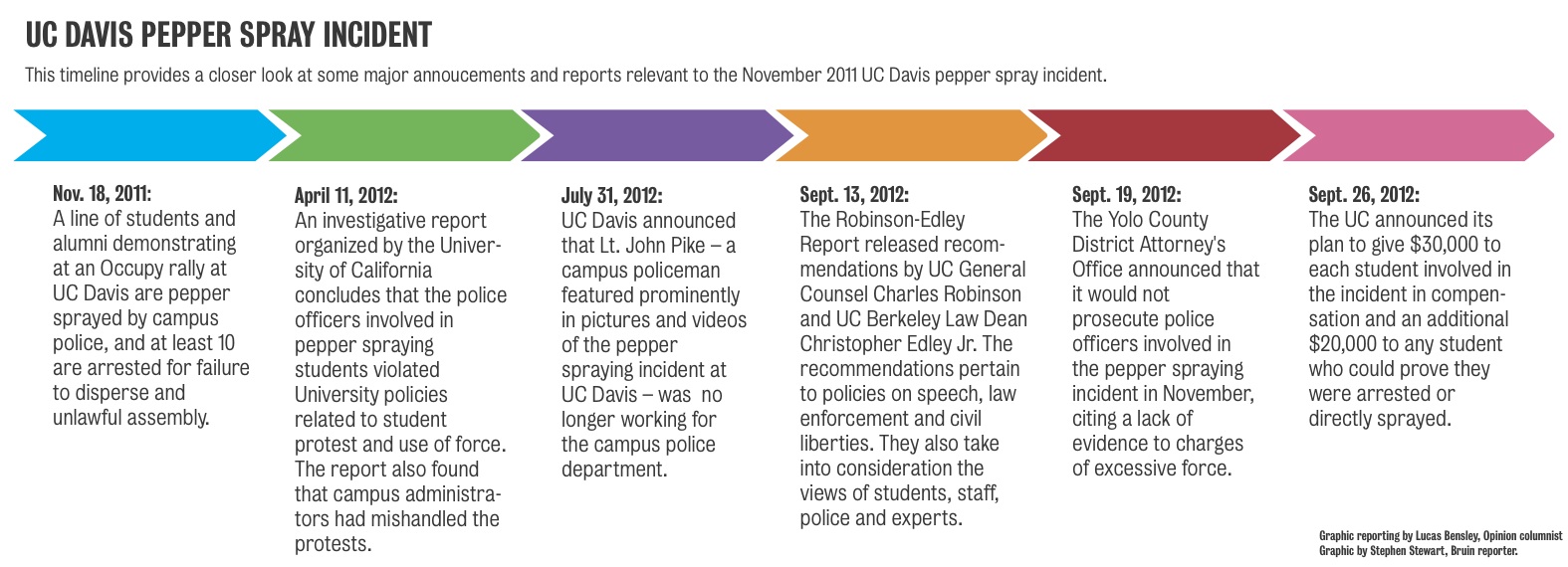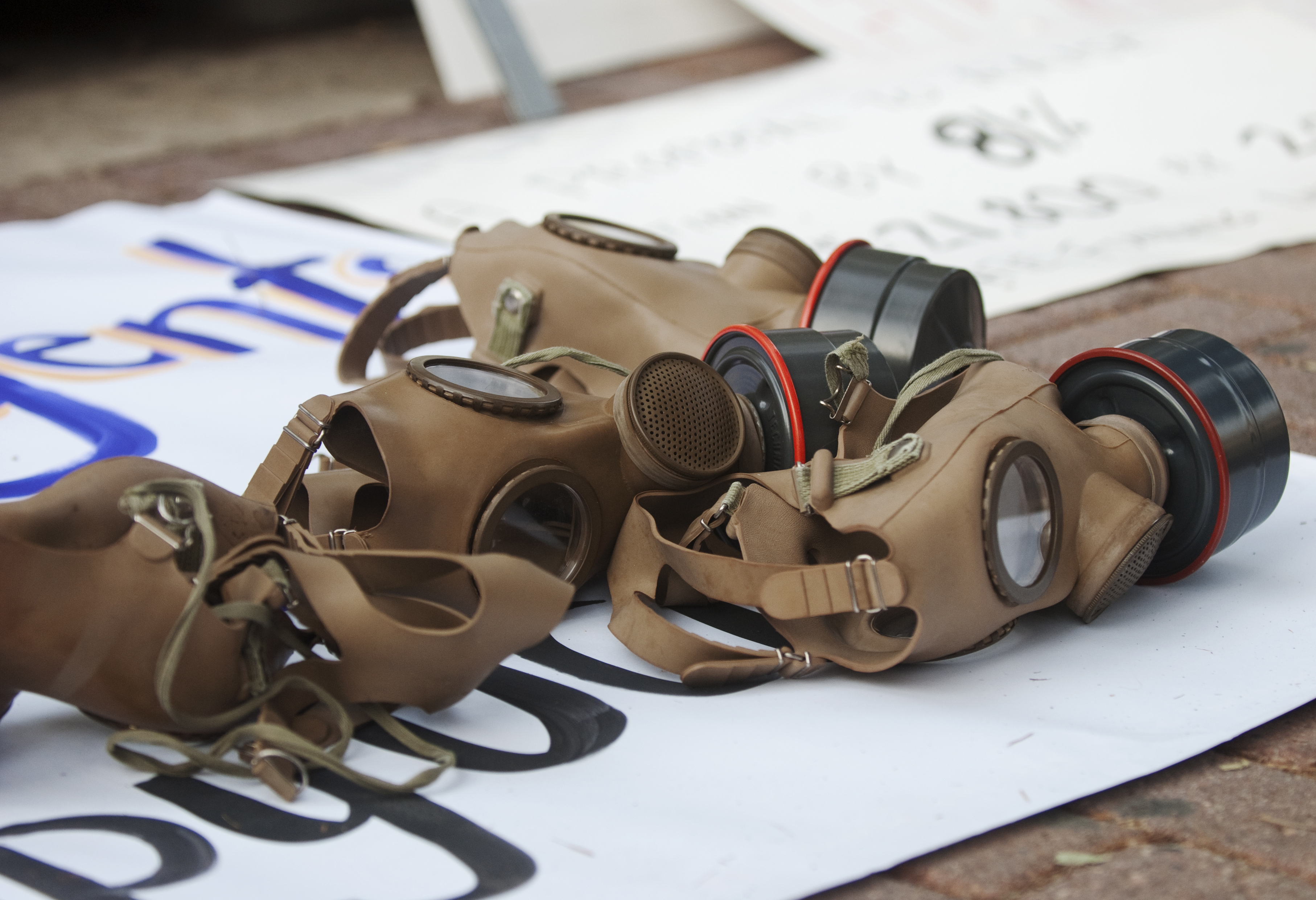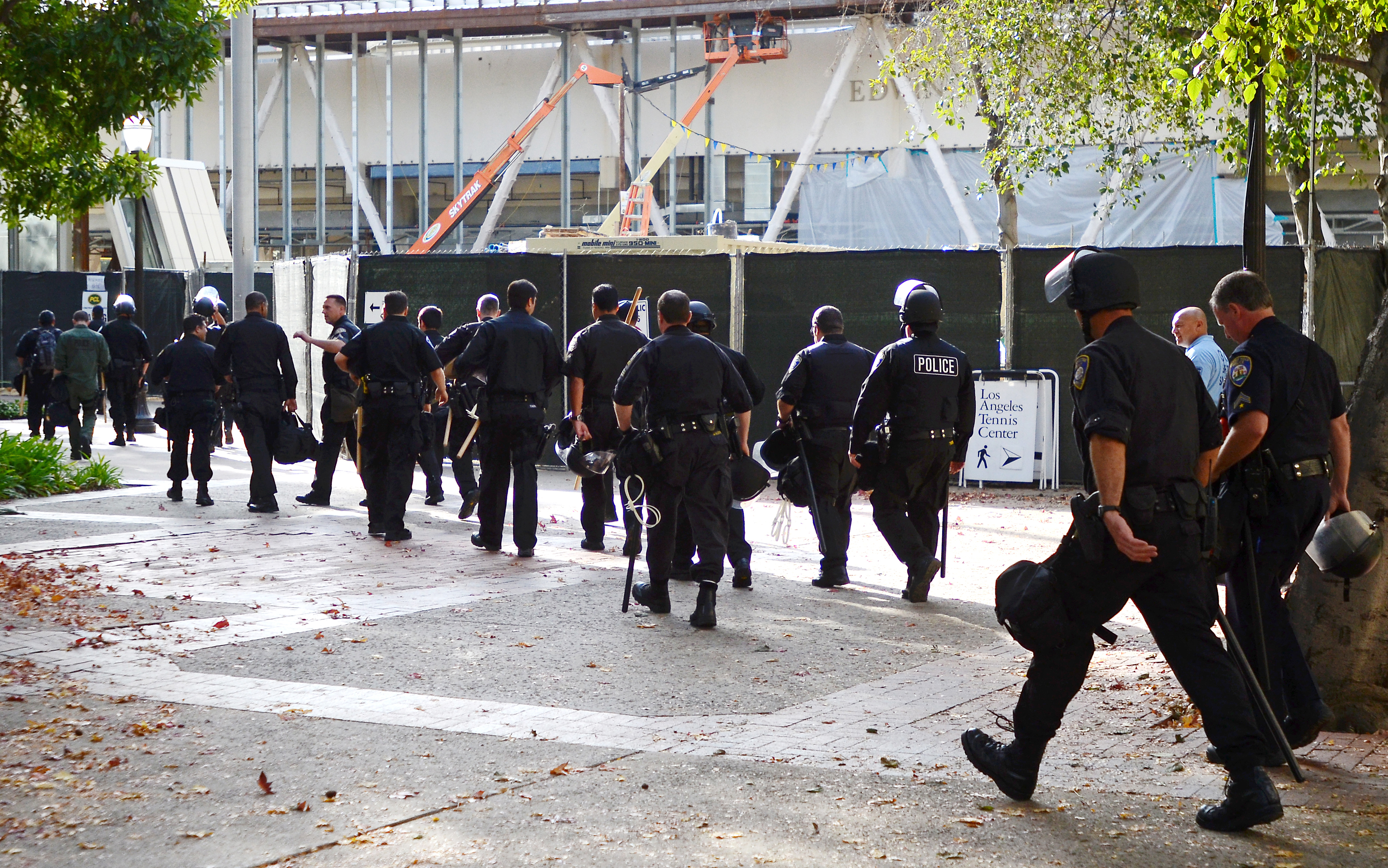

Protesters came prepared with gas masks in the event that police employed chemical agents to disperse crowds during a November UC Board of Regents meeting last year.
In a society that champions freedom as its foremost virtue, it is difficult to put a price on one’s civil liberties.
But in the case of last November’s crackdown on student protesters at UC Davis, the price tag came in at $1 million.
The incident, in which seated students were pepper sprayed by university police, drew widespread criticism of the University of California’s protest policies and treatment of political speech.
Though it is commendable that the settlement compensated students who were pepper sprayed, it is unfortunate that the settlement does not provide funding for new programs or policies that would re-establish trust between the student body and campus police officers.
Attorneys representing 21 UC Davis students announced Sept. 26 that the UC system would pay their clients $30,000 each in compensation for the incident. In addition, the University will give up to $20,000 to individuals who join the class action suit and can prove they were injured or wrongfully arrested.
A final portion of $20,000 was set aside for the American Civil Liberties Union to review UC Davis’s free speech and protest policies.
But this step has already been taken.
The initial incident was followed by months of internal investigation by the University and the release of reports addressing campus protest policies and the role of campus police in student demonstrations.
The most recent UC report, published in mid-September by the UC General Counsel and the UC Berkeley Law dean, provided several suggestions for revising protest policies: improving the training of police officers to better handle protests without the use of force; increasing communication between school administrators and students and recognizing civil disobedience as a protest tactic.
As of last month these suggested policies ““ all of which have merit ““ were still awaiting implementation by the UC system. Over the next six months, the UC Office of the President will work with each campus police department on policies that will be adopted system-wide. Some campuses have already taken steps to change protest policies.
It is unfortunate that this portion of the settlement cannot be used to put in motion policies that would be implemented system-wide and would work to reaffirm trust between administration, police and students. Currently, the settlement directs the ACLU allocation towards further reform recommendations surrounding the management of demonstrations and other internal procedures.
If these funds instead went toward the implementation of policy reform, it would have better enabled the University to mend its relationship with the student body.
The UC must take concrete action in order to align itself decisively in support of political speech by its students.
To be fair, the current settlement provides independent oversight of the UC’s movement toward reform, which could be valuable. But it could also be argued that the most insightful reform suggestions will come from within the system, from those who know the UC best.
Additionally, it is not cost-effective to go through yet another round of policy reform recommendations.
It will take time to re-establish trust at UC campuses between the student body and UC police forces, but it is an effort worth making.
Email Bensley at lbensley@media.ucla.edu. Send general comments to opinion@media.ucla.edu or tweet us @DBOpinion.
